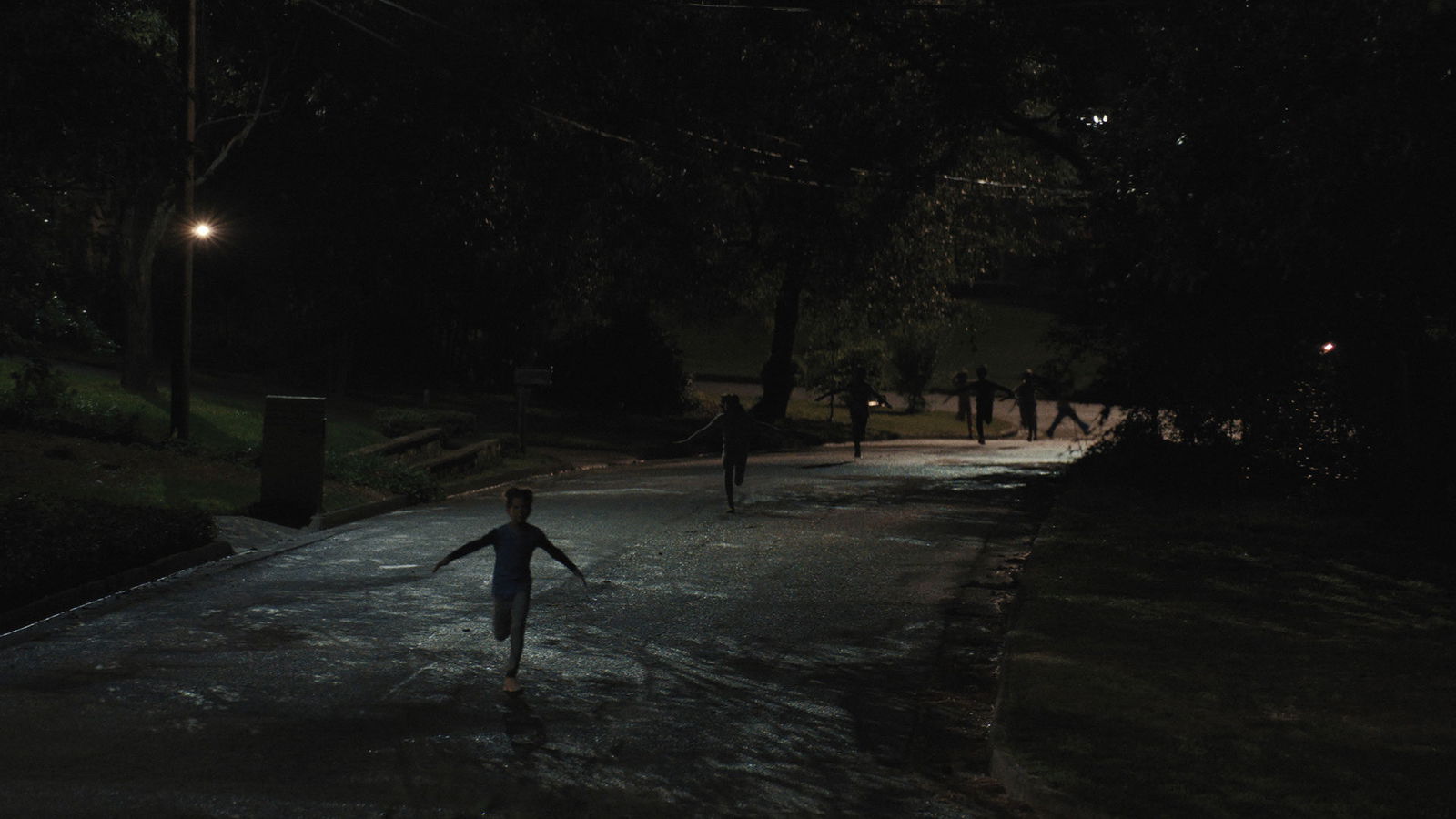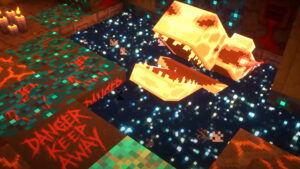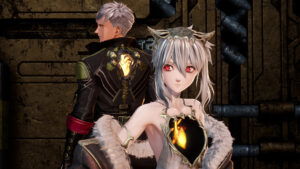On a quiet night, nearly an entire classroom of kids get up at the exact same time, leave their homes and sprint toward the darkness, never to return. What happens next? That’s the chilling mystery behind Weapons, the highly anticipated horror film from Barbarian writer-director Zach Cregger. The story jumps between various characters in the town as they try to figure out what happened and why. It’s a wild ride, mixing scares with a surprising amount of humour and a chaotic third act, as stated in my review.
Weapons also boasts an unlikely main influence: Magnolia, Paul Thomas Anderson’s 1999 sprawling character piece following random characters over the course of a day in the San Fernando Valley. The film shaped much of Weapons’ structure, aesthetic and even one of its main characters. That character in particular is Paul, a police officer played by Alden Ehrenreich, who is tasked with searching for the missing children and shares a complicated relationship with the kids’ teacher, Justine (Julia Garner).
I sat down with both Cregger and Ehrenreich to discuss Magnolia’s influence as well as their experiences making the film.
Minor spoilers for Magnolia and Weapons down below.
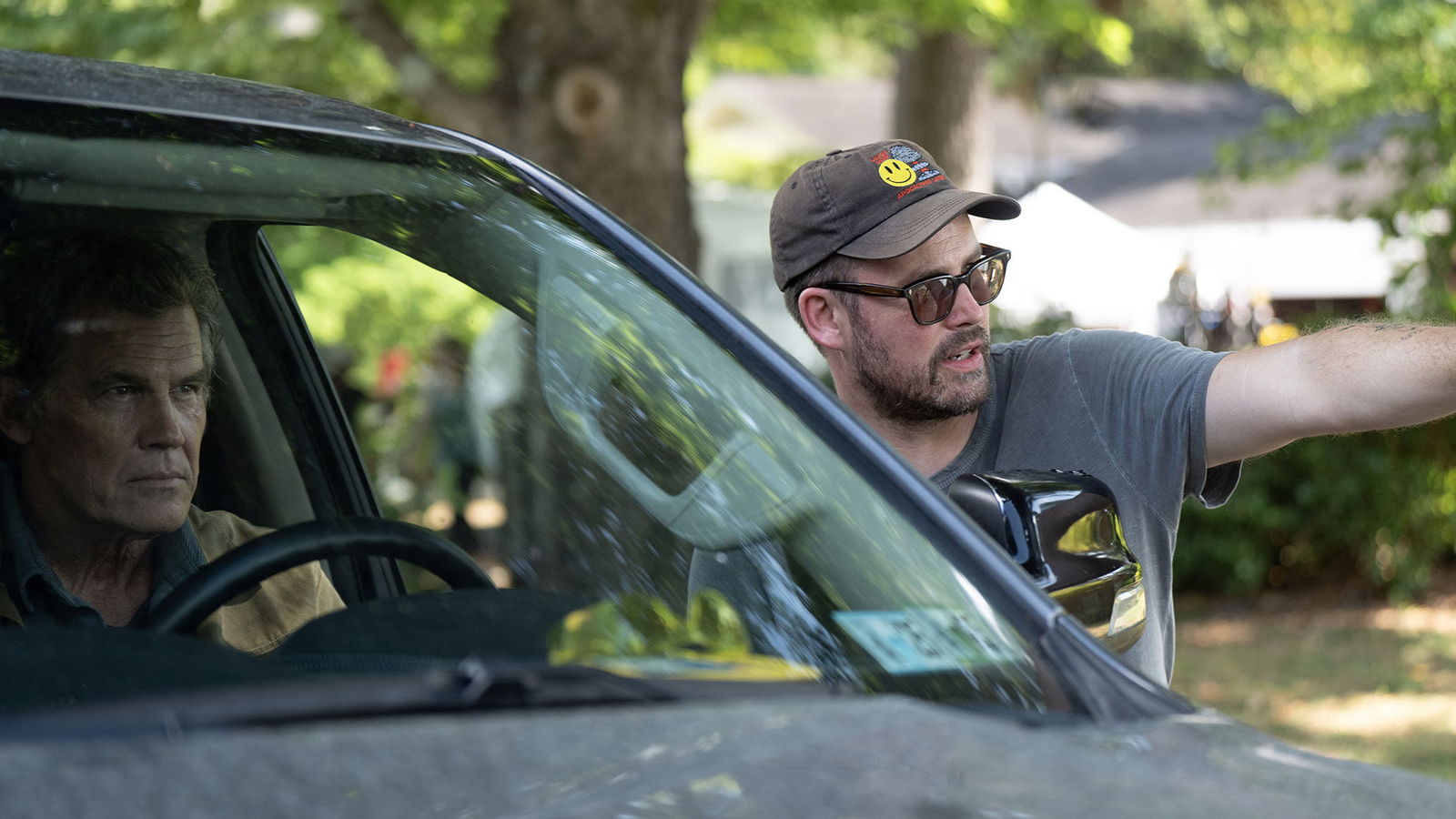
First off, congratulations on the film — it scared the hell out of me. Weapons was massively anticipated even before anything was shot; there was a bidding war between studios. My question to you, Alden: what was your reaction to the script when you first read it?
Alden Ehrenreich: I was told about it and sent it. I hadn’t even seen Barbarian. I read it, and by the middle of the 10th page, I thought, “I think this is one of the best scripts I’ve ever read.” I think that comes from the fact that Zach is writing the film from a very personal place, even though the events of the movie are not things that have happened to him, obviously. They come from a very deep and emotional place, and you can feel that. It resonates in a different way. There’s a magic to it you can’t quite put your finger on, but you can feel it when you read it.
When it came to developing the character of Paul in Weapons, was it strictly what was on the page, or were you given freedom to experiment with aspects of his personality?
Alden Ehrenreich: In this case, it was my favourite scenario where I didn’t feel like I had any notes or questions about the writing whatsoever. I felt the best feeling that I get as an actor, where you just want to live up to how beautifully crafted the writing is. And when that’s the experience, my job is just to try and make it deeper, fill it out, and make it a human being.
Because your role is very physical — especially in the third act — can you tell me what the training was like for Weapons?
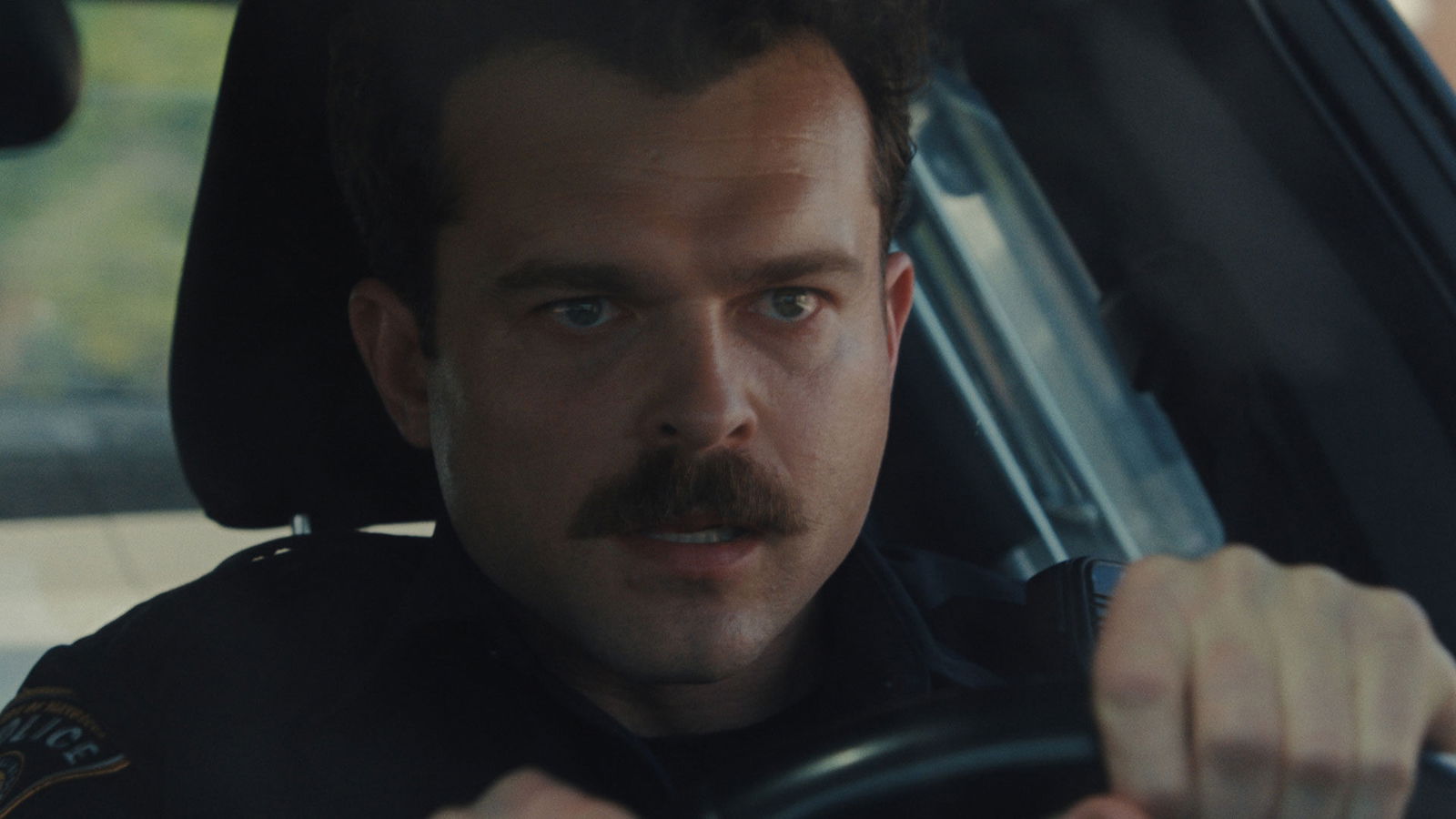
Alden Ehrenreich: I worked with a police officer to make sure that all that stuff is what you were trained to do in the academy. Other than that, just typical stunt training.
Zach, in the past, you’ve talked about Weapons being at least partially inspired by Magnolia. Can you expand on how that film inspired you to make this one? Were there any other films that influenced it?
Zach Cregger: Well, first of all, John C. Reilly’s mustache is in this movie — and it’s on Alden’s face. That’s the first thing. We actually designed Paul’s look — his hair, mustache and everything — based on Reilly in Magnolia.
The reason Magnolia is the biggest touchstone is that it’s a big, sprawling, multi-character epic. It’s overwhelmingly sombre, but it’s also hilarious. It has a very distinct palette, but it paints with a lot of different colours, if that makes sense.
It’s also unapologetically an epic, and I just like the idea of making a horror movie that felt like an unapologetic epic in the way that Magnolia was. Also, Magnolia has this weird, amazing miracle at the heart of it with the raining of the frogs [in the film’s climax]. I thought, “That’s cool.” To me, the kids running away at the beginning of the movie is my miracle at the beginning, and everyone has to deal with that. There’s a lot of things.
There’s that scene where they’re looking for John C. Reilly’s gun in the rain, and I was just in love with that movie, visually. [Robert Elswit] is the cinematographer of that movie, and he is just on another level. [Cinematographer Larkin Seiple and I] talked about that movie a lot visually when we were making this.
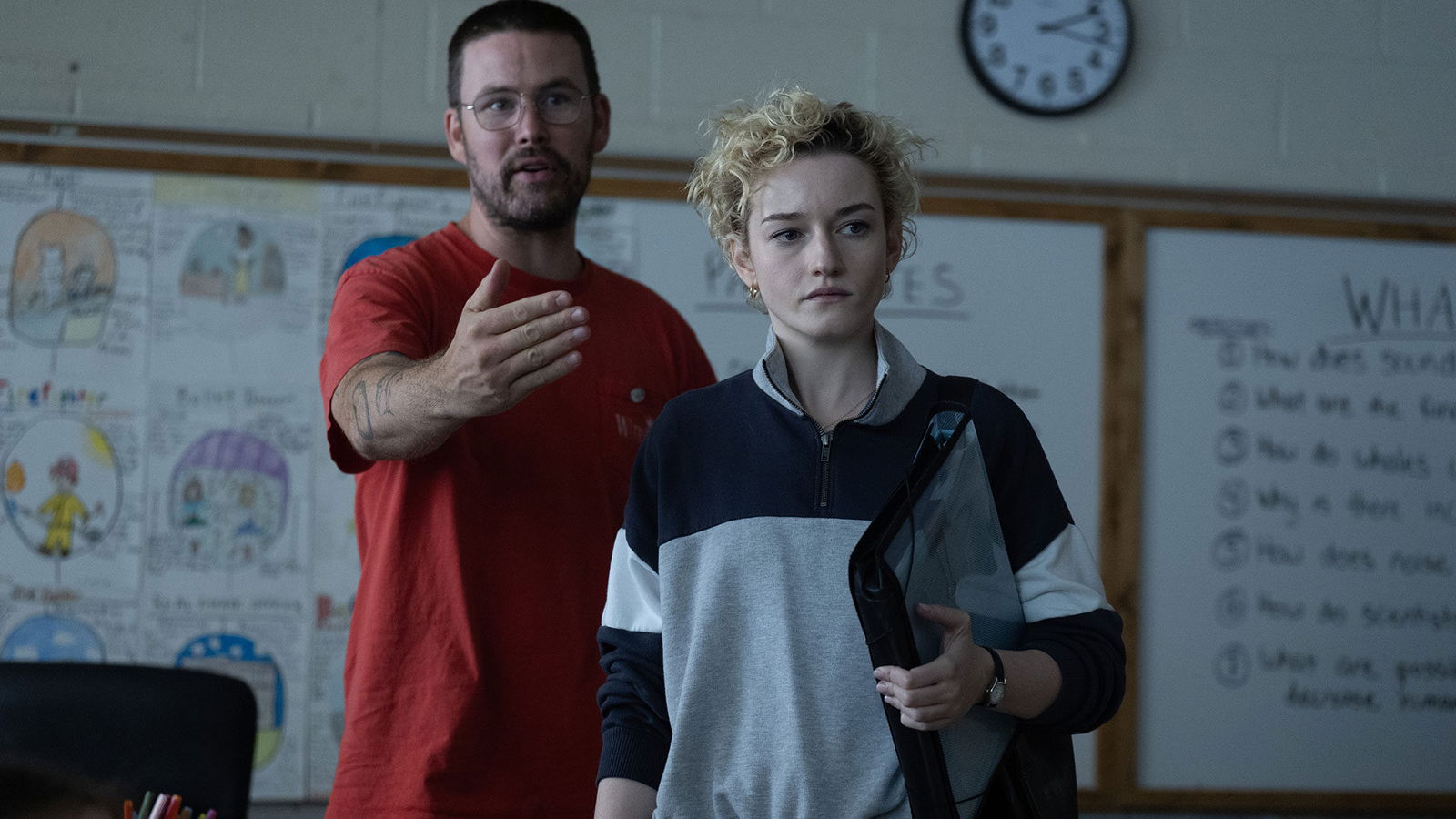
When it comes to both Weapons and Barbarian, I was surprised and impressed with how you interject humour into these horrifying situations — especially considering your background in comedy with the sketch group The Whitest Kids U’Know (which I’m a huge fan of, by the way). With Weapons being such a dark story, how do you know when to add humour and when to just let it be pure horror?
Zach Cregger: I think as long as the humour is honest, it can go in. You never want to put a joke in just for the sake of a joke. There are a couple of moments in Weapons where, while shooting, I had some jokes I thought were hilarious. Then we did a test screening, and none of the jokes I thought were the funniest got laughs — and it’s because they were jokes for the sake of being jokes.
When the humour is a byproduct of the situation and it’s truthful, it works. But when I’m trying to write something clever, it’s not good. So, I try to make that the rule: if it’s honest and born from the situation, it will work; if I force it, it probably won’t.
Alden, with you being such a huge standout in recent ensemble pieces like Cocaine Bear and Oppenheimer, I wanted to ask: what’s the general vibe when you’re coming into all these very different films, tonally? Is there a difference with Weapons? Is there a more upbeat vibe or anything like that?
Alden Ehrenreich: Not necessarily. It doesn’t always line up that way. For me, your character in the story has no idea they’re in any particular genre of movie — they’re just living their lives. So in a way, the job is the same each time, even if the effect on the audience might be completely different. In one case, it’s laughter; in another, it’s horror. It’s the same work as far as my work goes.
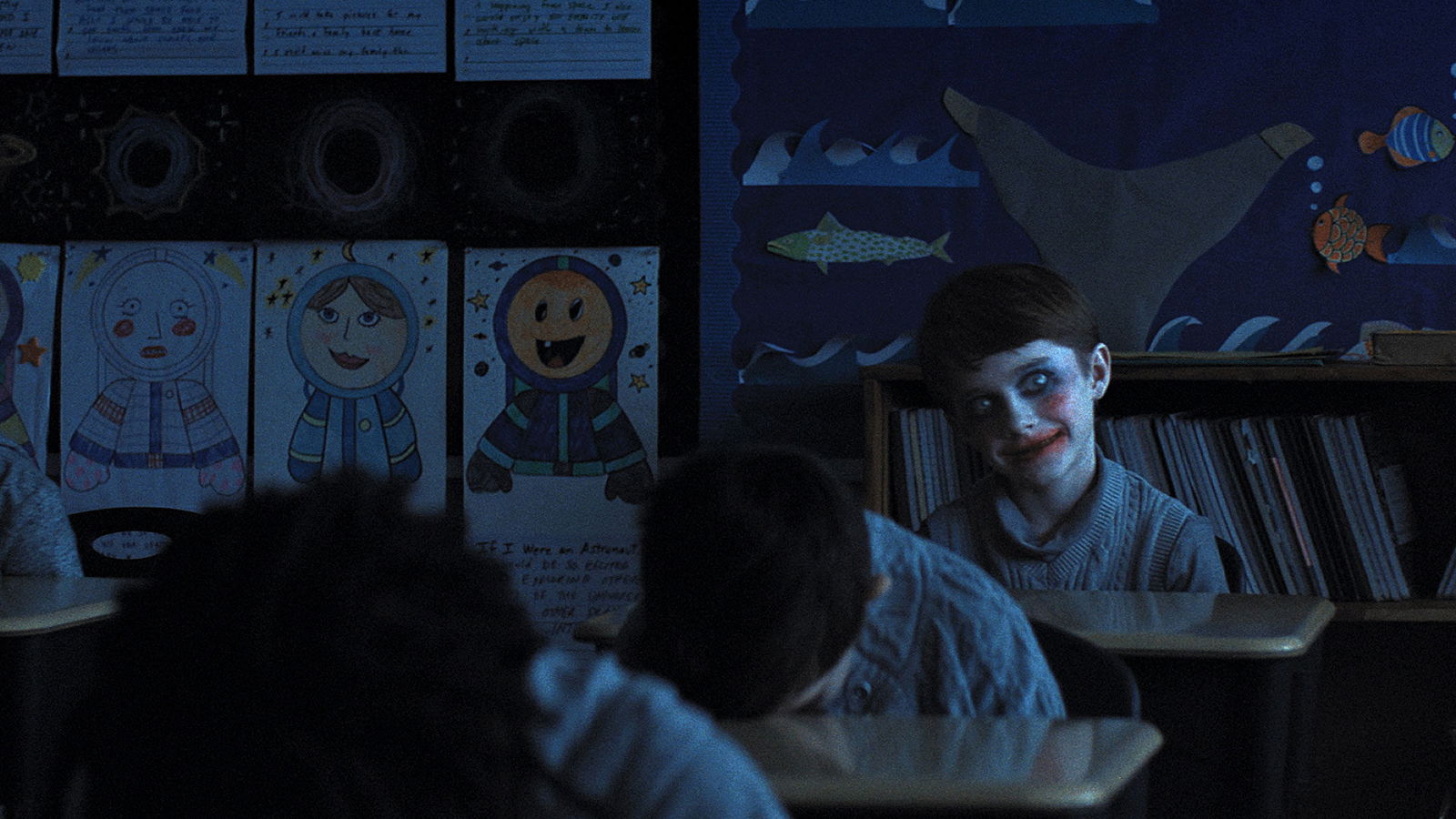
Last question for you, Zach: with some of the biggest scares in Weapons happen in places you wouldn’t expect — like the gas station in the middle of the day — where does the urge to make these seemingly normal situations feel abnormal or completely off come from?
Zach Cregger: I don’t know, honestly. The gas station attack is just an example of me writing and thinking, “I’m beginning to feel bored — let’s mess this movie up a little bit,” because I didn’t really know where it was going when I was writing. So, in the gas station scene, when Julia Garner and Josh Brolin are having that confrontation, I thought, “It’s time to turn everything upside down. I can feel it. Now is the time.” So I just started with the attack. A lot of it is just me trying to tune into my subconscious wants as I’m writing. I try not to get too intellectual about it.
Thank you both so much for your time. I had a blast with Weapons. I can’t wait to watch it again with a full crowd. The directions the film takes are wild. Thank you so much.
Alden Ehrenreich: *laughs* Thank you.
Zach Cregger: Thank you very much!
